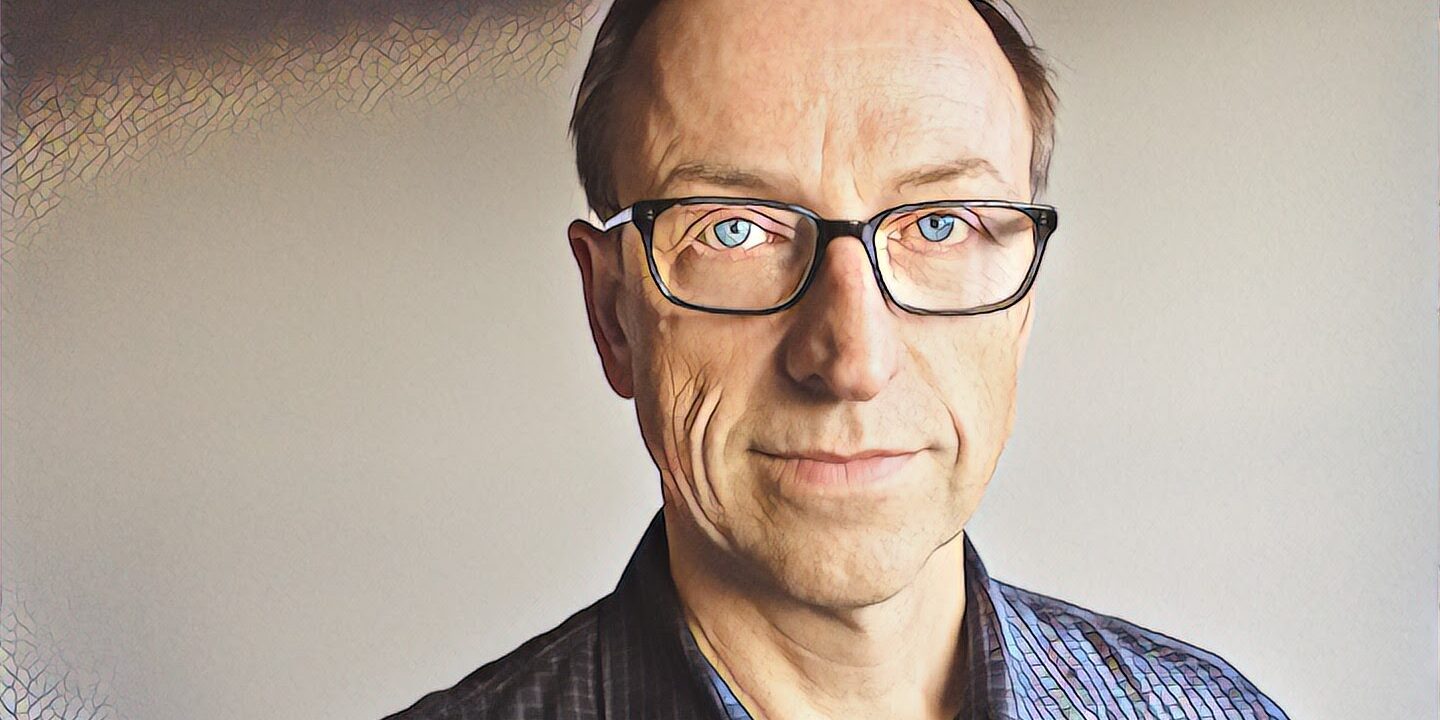Liminal Thought Leader Jerry Michalski – Perspectives On Organizational Change


The third in our series of interviews asking a number of noted thought leaders for their views on a few basic but essential questions on Organizational Change.
“Consumer Mass-Marketing Capitalism is the particular flavor of Capitalism that we’re stuck in at the moment. It relegates us to being mere consumers while it eats the world’s natural resources in order to create the appearance of plenty. But it is dying. And that’s a good thing.”
I was delighted to have the opportunity to interview Jerry Michalski who has recently launched a new initiative on Patreon very much concerned with the subjects we are discussing in this series. Perhaps one of the questions that Jerry asks most often and most deeply is, “What if we trusted you?”
Mike:
I know from our discussions in the past that you are both fascinated by and deeply involved in organizational change. Do you see major change as being inevitable and essential to organizations the world over, both commercial and non-commercial?
Jerry:
Consumer Mass-Marketing Capitalism is the particular flavor of Capitalism that we’re stuck in at the moment. It relegates us to being mere consumers while it eats the world’s natural resources in order to create the appearance of plenty. But it is dying. And that’s a good thing.
I see the election of Donald Trump, the Apex Predator of Consumer Mass-Market Capitalism, as the death throes of the old order. Unfortunately, orders sometimes live on much longer than you’d expect. They have a way of hanging on, especially when they hold a dominant worldview that makes other orders seem illogical or impossible. For a rationalist, modernist Capitalist, communitarianism and cooperatives seem like quaint, impossible arrangements of society.
But those old ways of seeing are completely outdated. We need to grind new lenses so we can see the new ways of being more clearly. Time is of the essence.
“Those willing to see differently will invent our next markets and social contracts.”
Mike:
What part does leaders changing their own mindsets play in this kind of change?
Jerry:
Mindset is everything, but it is extremely hard to shift. That’s even more true if the new mindset runs counter to your training, credentials and status. Those willing to see differently will invent our next markets and social contracts. There is much to do once you replace scarcity and profit with abundance and well-being, for example.
Mike:
What do the terms ‘values’ and ‘higher purpose’ mean to you? I hear them being spoken about in this context quite a lot. Do you see these as being core to the development of successful and fulfilling organisations?
Jerry:
Values are the things we claim to value in our culture. Alas, people are seldom consistent with their stated values, so you have to dig under surface behaviors and trite mission statements to make any progress.
These days, few people have employment that creates value congruent with their values, which is a social tragedy. That means their work lacks meaning, or worse, creates damage in the world that they notice. Picture the loading dock worker at Nestlé who sees zillions of plastic bottles of water go into the world, an accounting clerk at Altria totting up cigarettes sold, or a lawyer at Monsanto strategizing how to put more small farmers out of business whose crops accidentally cross-pollinated with their patented crops. Right?
When your work is harmful, you might find higher purpose in developing teams or individuals, in community volunteer work or in donating the bulk of your wealth to good purposes. Alas, philanthropy is not a karmic cleanser.
Sorry to sound so cynical in my replies, but the current moral state of business is low. Wall Street pressure forces it. I am thrilled to note that topics that were taboo in most boardrooms three decades ago, like sustainability, purpose, meaning, well-being, mindfulness, the Commons, transparency, authenticity and even vulnerability (you can almost feel the lawyers shudder), are finding their way into top-level conversations.
Before colonization, around the world, most societies understood how to live in community on the Commons. That gave them meaning and values held in common. I’m not suggesting we revert to eras for which we’re nostalgic, but rather that we notice, revive and adapt early wisdom that can set us on the right path going forward.
Mike:
As the founder of the Relationship Economy Expedition (REX), global speaker, father of a long running retreat and more recently creator of a new Patreon project, life must be super busy, challenging, varied and fun. Would you like to give us a brief summary of what a day might hold for you?
Jerry:
The only times my days look similar are when I’m at an event, either as a participant or organizer/facilitator. Last week I facilitated a two-day Open Space workshop for a startup my wife and I both advise in Silicon Valley. The day after, I met with several startup founders and several friends. On Friday I flew early to Seattle for an appointment to get a Nexus card from US and Canadian customs (it’s like Global Entry), then spent the day brainstorming with a dear friend who lives there and took Amtrak’s Cascade home to Portland late in the day. Portland’s train station is six blocks from home, so I rolled home.
Mike:
Is there one piece of advice you would give to organizations wanting to move towards a new more complete kind of organization (something like but not limited to or bound by the idea of Teal) ?
Jerry:
Understand the role trust plays in all aspects of your organization. For example:
- Do your various stakeholders trust you? Which relationships are broken, and how?
- In particular, do you call your customers “consumers,” and do you treat them as statistics? Other than your obeying laws and regulations, why should they trust you?
- How is trust among your employees? Watch this talk by Ricardo Semler for inspiration of what you might do and achieve.
- Are there ways your business model betrays trust? Does your company have skeletons in its closet you’re afraid to disclose? Why should we renew your social license to operate?
Mike:
Finally what other questions do you think we should be asking both here and more generally?
Jerry:
We’re at a fascinating moment in world history. For almost two millennia, Egypt’s art looked more or less the same, and despite much intrigue and infighting at shorter time scales, their social structures remained recognizable over that long term. That’s many lifetimes. We industrialized the world, then consumerized it between 1700 and 2000. Now all that’s unraveling, and the answers are not visible to most people, which is making them increasingly anxious.
For example: Where will new jobs come from? How will they be safe from software, which is happily munching up work of all types? Is the Post-Factual World we’ve slipped into a short-term phenomenon, or a 300-year era? How might we help reconnect people with one another, and with meaning? Why do our politicians so often make stupid decisions and get us into optional, unnecessary wars? And most optimistically: How can we amplify the stories that work, so that more communities can implement the parts they like, locally?
How to Get Started with Liminal Coaching
Drift to Peace Guided Relaxation Session
“Drift to Peace” is a guided relaxation recording that speaks to your brain while you doze or dream. Release stress, reduce tension, and ‘clean up your mind’—without doing any extra work.

One on One Coaching
This just-for-you package of 4 to 10 sessions will make the highest impact on your personal and professional life. You’ll learn to set boundaries, remove the negative influence of others, boost self-confidence, get in touch with your intuition, and much, much more.
Interactive Liminal Exploration Course
Presented with The School of the Possible, this transformational six-week course combines live group sessions with video and handouts.
Liminal Coaching for Teams & Business
By working with metaphor and harnessing the power of the full brains of everyone on your team, you can achieve startling breakthroughs and surprising results.
Watch this short video to learn more.
